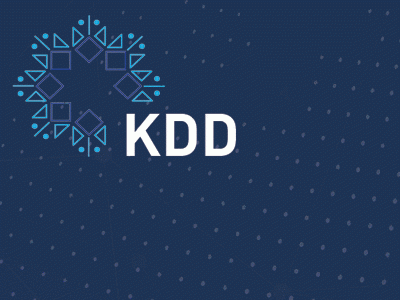KDD 2014 Industry and Government Track Invited Talk
Among the number of exciting things coming together for KDD 2014, one structural change has been the merger of the Industry Practice Expo (IPE) from previous years with the Industry & Government Track. The primary reason is to ensure that scheduling and content are aligned as closely as possible, resulting in an improved experience for all of you attending the conference in New York at the end of August.
This series of invited talks within the KDD 2014 Industry and Government Track provide a venue for leading practitioners who have been involved with the design, implementation and deployment of seminal, and proven applications of data mining and knowledge discovery.
We are very happy to announce the following confirmed speakers and topics so far -- which run the gamut from applications in medicine, crime, data collection and compensation in emerging markets, personalization, using unstructured text and imaging data from natural disasters, real-world predictive modeling infrastructure, and examples of data science work from New York’s Mayor’s Office. We’re excited that a number of the invited talks align with the KDD 2014 special theme -- “Data Science for Social Good”.
Cynthia Rudin of MIT will lay out the case for transparency in predictive modeling -- on many applied problems, domain experts are not always comfortable with “black-box” models. The need and benefit of transparent predictive models are motivated by two case studies: one in stroke prediction and the other in predicting violent crime in young people raised in out-of-home care.
It isn’t very often that we get to see behind the curtain into details of large corporation’s use of predictive modeling, but this is your chance. Tracey De Poalo, Predictive Analytics team manager at Sprint, and Jeremy Howard, of Strategic Data Science and formerly President and Chief Scientist at Kaggle, will discuss the development of a wide range of models at Sprint. Additionally, you’ll also hear about the “real world” issues that need to be addressed when creating a reusable data analytic and predictive modeling process.
Nathan Eagle, from Harvard and CEO of Jana, describes a very interesting system working with 237 mobile phone operators across 102 countries to effectively assess petabytes of data about human movements, transactions and communication patterns, while compensating mobile phone end-users in these emerging markets -- emphasizing the value of consumer data in underserved and understudied regions of the world.
Nigam Shah of the Stanford School of Medicine is one of the people at the forefront leveraging electronic health records (EHRs) for advanced, evidence based decision support and care. The unstructured patient data captured in EHR systems provides the raw material to monitor for adverse drug events, profile specific drugs, identify off-label drug usage, uncover “natural experiments” and generate practice-based evidence for difficult-to-test clinical hypotheses.
How can more than one million human judgements on unstructured text and imagery data around natural disasters compare with social media following disasters? Robert Munro of Idibon shows how natural language processing and distributed human computing help improve the lives of speakers of all of the world’s languages. We’ll learn how for-profit technologies are improving people’s lives by providing sustainable economic growth opportunities when they support more languages, aligning business objectives and global diversity. On the topic of global diversity -- Robert has experienced some of it by cycling more than 20,000 kilometers across 20 countries!
Sri Subramaniam, from Groupon, hits on the gap between offline retailers -- which have nailed discovery, delight, serendipity, and impulse purchases -- with the always-on, mobile-first world. The key is how to push the frontier even further than offline retailers by leveraging smartphones; providing the right offer to the right user at the right time. See how Groupon manages to grapple with these challenges via a data-driven system in order to delight and surprise customers.
Drew Conway hits on data science from the perspective of a social scientist, discussing how the various skills and disciplines combine to achieve successful results. Drew will interleave examples directly from his work as a senior advisor to NYC’s Mayor’s Office of Analytics.
Stay tuned as we roll out additional presentations and events around “data science for social good” that will be included as part of this year’s Industry and Government Invited Talk series! For more details, check out http://www.kdd.org/kdd2014/industry-gov-talks.html.
- Paul Bradley



